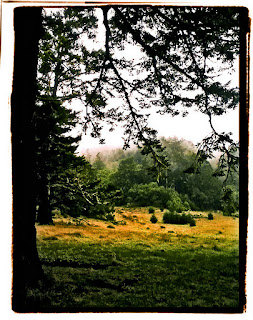
Giotto Di Bondone, Allegory of Obedience, ca. 1330
"...hitherto nothing has been practiced and cultivated among men better or longer than obedience..."
Friedrich Nietzsche, Beyond Good and Evil, 1886
Giotto Di Bondone was born in Del Colle, a village in the commune of Vespignano near Florence in 1266 (Woltmann and Woermann, ed. by Sydney Colvin, History of Ancient, Early Christian and Medieval Painting, 1880). Giotto was an architect and painter in cities across Italy. Only three years before his death in 1337, Giotto was appointed by the comune of Florence to the position of chief architect of the Florence Cathedral, a testament to the high esteem in which he was held by both his cohorts and the civic leaders of his time. Dante and Petrach both laud him for his mastery in the arts and one scholar has written that "the opinion of his contemporaries entertained of Giotto as the greatest genius in the arts which Italy in that age possessed..." and, "It was not only the artist Giotto, but the whole man, that impressed the minds of his contemporaries."
The beginning of Giotto's artistic vocation was devoted to the Franciscan order at Assisi. Later in his career Giotto would return to Assisi and it is there at the Lower Church, above the tomb of St. Francis, that he painted the Allegory of Obedience shown above. The central, winged-female figue is Obedience and she is flanked by a Janus-faced Wisdom and Humility holding a torch to the viewer's right. Obedience places a yoke upon a Franciscan monk while angels and other characters look on. Above the scene St. Francis himself is pulled up to heaven by two arms while two angels appear to recite the laws of the Order of St. Francis.
All well and good, except according to Alfred Woltmann, Giotto didn't really like the monkish way of life:
"he who had to put so much of his art at the service of the Franciscans had, in doing so, become disgusted with the monkish temper, he protests with rare independence against the mischievous wolves who, in their false clothing, seem the mildest of lambs, and against disguised lust of power and hypocrisy. Poverty unsought, he says, is bad enough, but voluntary poverty, at least, did not lead to wisdom, morality, virtue, or knowledge, and it was a shame to call that virtue which consisted in despising what was good."*
* For the full text on which Woltmann bases his claim see, The Collected Works of Dante Gabriel Rossetti, Vol. II, Boston, 1887, pp. 212-214, "Giotto Di Bondone, Canzone. Of the Doctine of Voluntary Poverty."




